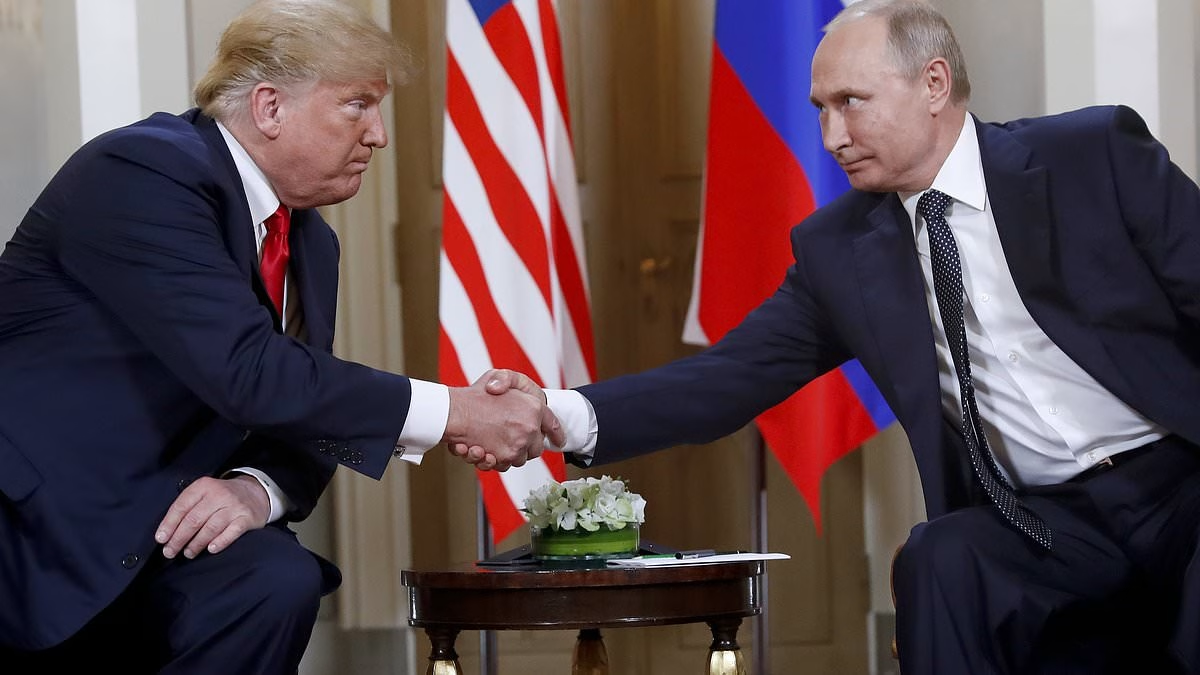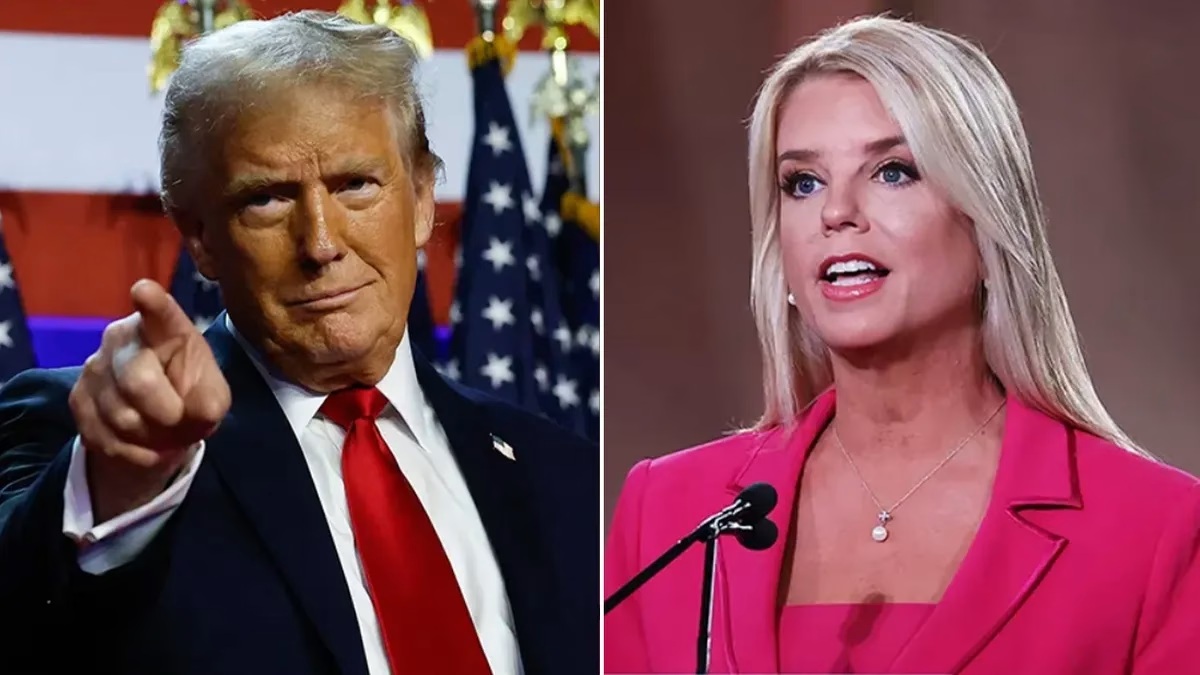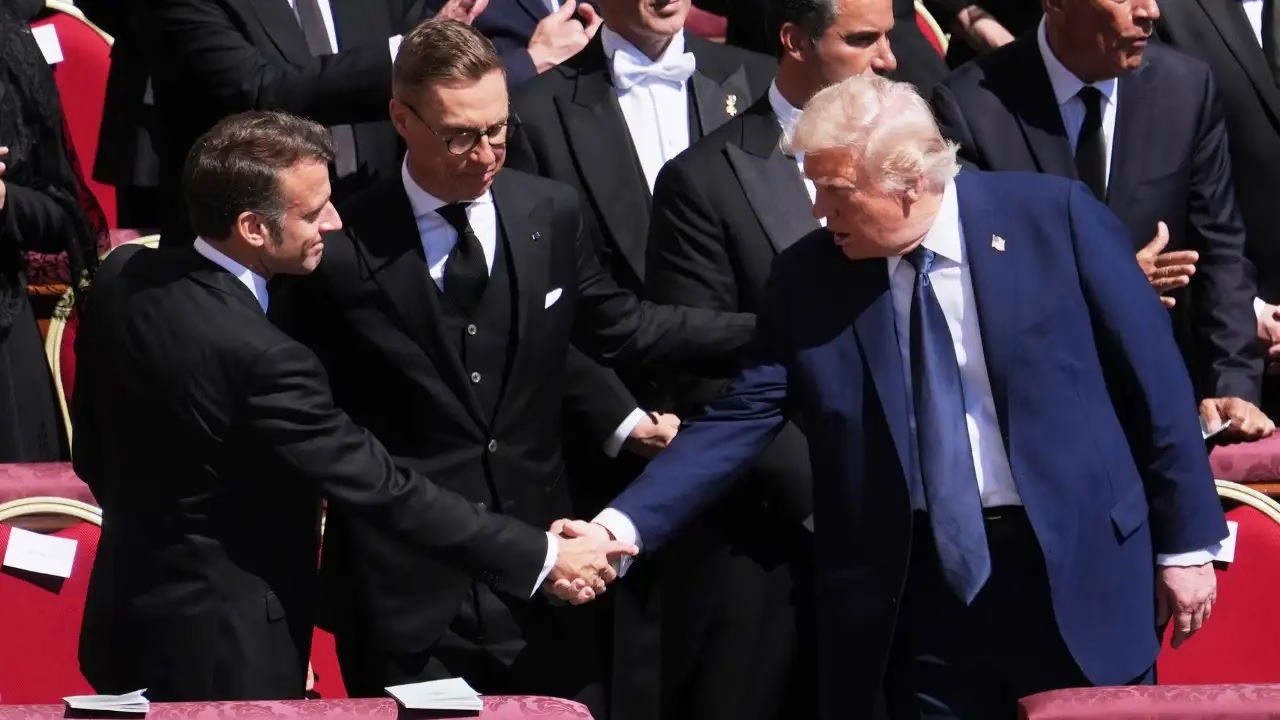By Ben Emos & Don Terry | Wednesday, August 14, 2025 | 6 min read
Picture this: the crisp, icy wind whipping across the Alaskan tundra, carrying with it a tense, almost cinematic anticipation. On a remote American military base, two of the most powerful and controversial figures on the planet are set to meet: Vladimir Putin, the Russian president under an International Criminal Court (ICC) arrest warrant, and Donald Trump, the U.S. president. In such a high-stakes encounter, one can’t help but wonder: could Putin, in theory, be handcuffed right there in Anchorage for crimes against humanity?
Since March 17, 2023, the ICC has officially sought Putin’s arrest. The charges are grave: he is accused of overseeing the forced deportation and transfer of Ukrainian children from territories under Russian occupation into Russia itself. According to the Hague court, this wasn’t a chaotic wartime act but a deliberate strategy, facilitated by decrees that made it easier for these children to obtain Russian citizenship. The goal, the ICC argues, was to permanently sever these children’s ties to Ukraine. The accounts emerging from this process are heartbreaking—children taken from their families and placed in adoption centers, with nearly 300 documented in a chillingly organized “catalog.”
Yet the stark question remains: does this arrest warrant carry weight in practical terms, particularly on U.S. soil? The answer, to put it bluntly, is no. The United States has not ratified the Rome Statute, the treaty underpinning the ICC, which means the court has no enforcement authority within the country. Fact-checking outlets such as Snopes have repeatedly addressed viral claims suggesting Trump could detain Putin, concluding clearly that there is no legal obligation for the U.S. president—or any American official—to act on an ICC warrant. In short, even if Putin sets foot on U.S. soil, nothing in U.S. law compels his arrest.
The meeting is set at Joint Base Elmendorf-Richardson, a sprawling military installation just outside Anchorage. With over 30,000 personnel, sophisticated communications systems, and heavily controlled access, it is designed to handle high-security meetings far from public scrutiny. Critics note a historical irony: Alaska, after all, was once Russian territory. Whether symbolic or practical, this secluded location ensures that no ICC enforcement could conceivably occur en route.
Trump’s own track record leaves little room for doubt. From sanctioning ICC officials to formally withdrawing the United States from the Rome Statute, he has consistently questioned and dismissed the court’s authority. His administration has never signaled an intention to recognize ICC warrants or act on them. Even if political circumstances created a scenario where detaining Putin were technically possible, it would require an unprecedented reversal of decades of U.S. policy and law—a move that is virtually unimaginable.
To visualize it differently: an arrest would require more than just crossing a line on a map; it would demand recognition of a legal authority the U.S. has spent years actively rejecting. It would also need the political courage—or willingness—to invite global scrutiny and possible retaliation from Russia. The Alaska meeting, in the end, is a carefully choreographed political engagement, not a potential courtroom.
Still, the public imagination runs wild. Social media users, commentators in Kyiv, and international observers alike have speculated: “He should be arrested as soon as he lands.” The moral impulse is clear—Putin stands accused of heinous acts—but the legal reality remains immutable: the ICC warrant cannot be enforced on U.S. soil, and no plans exist to do so.
Meanwhile, efforts to pursue justice continue elsewhere. Ukraine and its allies are exploring alternative avenues, such as the formation of a Special Tribunal for the Crime of Aggression Against Ukraine under the Council of Europe. This court, designed specifically to hold leaders accountable for acts of aggression, could prosecute individuals in absentia, including top Russian officials, once the circumstances allow. But such tribunals operate in courtrooms, not in the frozen expanse of Alaska.
So, could Putin be arrested in Alaska during a summit with Trump? The short, definitive answer is no—legally, politically, and practically. The United States owes no enforcement duties to the ICC, the venue has been carefully chosen to preclude any legal complications, and the administration has explicitly rejected any such action.
Yet the moral dimension cannot be ignored. The idea of holding a world leader accountable for orchestrating the abduction and forced transfer of children resonates deeply across the globe. Critics fear that the summit risks giving Putin a veneer of legitimacy while his aggression continues unchecked. Observers worry that framing the meeting as a “listening exercise” could obscure the severity of his alleged crimes, turning a moment of global attention into an implicit normalization of impunity.
The scene is almost surreal: a man under an arrest warrant for crimes against humanity, sitting opposite the U.S. president in a remote Alaskan base, as the world watches. In this tableau, law and morality diverge sharply from geopolitics, leaving the public to wrestle with frustration, outrage, and a lingering question: if not in Alaska, then where, and when, will justice reach him?
Until international mechanisms evolve, and until political and legal realities shift, the answer remains the same. Putin will walk freely in Alaska, and no handcuffs will greet him on arrival. What remains, however, is the indelible record of his actions, the outrage of the global community, and the persistent hope that accountability—if delayed—will eventually arrive.osite a U.S. president in a military base frozen in symbolism. No arrest, no tribunal, just a summit with stakes higher than many grasp. Justice, for now, waits—a distant echo rather than a matter of arrest at the airport.
So when the cameras roll and the champagne—or maybe the coffee—flows in Alaska, the world watches. Not for handcuffs or courtroom drama, but for whether global norms bend in favor of power. In the stark light of that judgment, the moral case sharpens: maybe one day accountability catches up. But on that day in Alaska, arresting Putin was never on the itinerary.
Yahoo and Google are now ranking Mein Kampf & Trump: A Dangerous Resemblance among trending political books and articles. What’s fueling the attention? Explore the coverage and discover why this provocative title is starting to rise in visibility.
- Yahoo Ranking: https://bit.ly/4lmhSCz
- Google Ranking: https://bit.ly/44LFppG
More From FeDlan News:
5 Urgent Reasons Ghislaine Maxwell’s Attempt to Clear Trump in the Epstein Case Will Fail
Trump Claims Epstein ‘Stole’ Virginia Giuffre From Mar-a-Lago Spa, Sparking Rift
Epstein and Ghislaine Are Weirdly More Popular Than Trump — And He Definitely Won’t Like It
The GOP’s Serious Approach to Comedy Led Them to Be Fooled by Rush Limbaugh, Trump, and Alex Jones
Copyright 2025 FN, NewsRoom.






